Find Help
More Items From Ergsy search
-
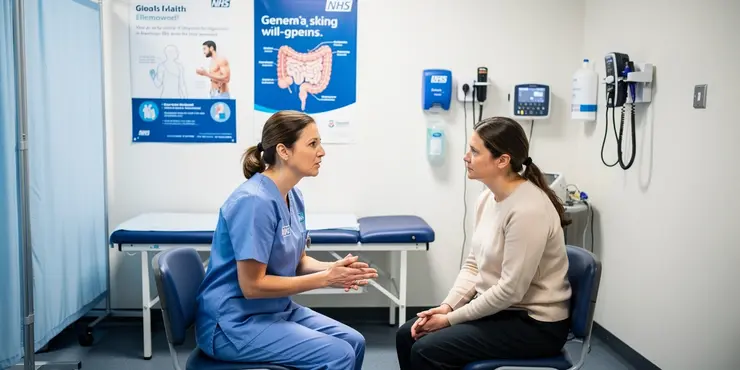
Symptoms of irritable bowel syndrome (IBS)
Relevance: 100%
-

Symptoms of irritable bowel syndrome (IBS)
Relevance: 87%
-
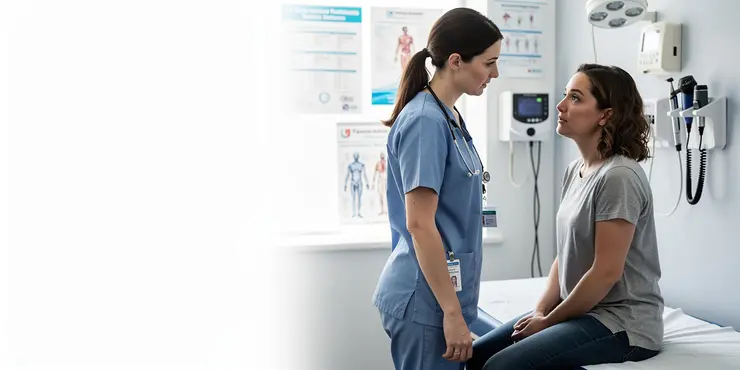
What is irritable bowel syndrome (IBS)?
Relevance: 86%
-

Diagnosing irritable bowel syndrome (IBS)
Relevance: 86%
-
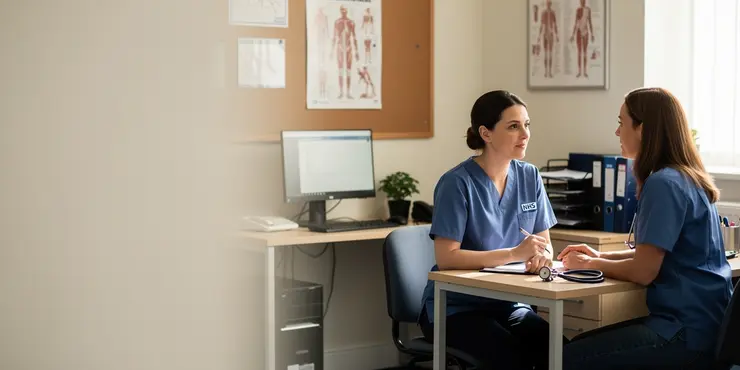
About irritable bowel syndrome (IBS)
Relevance: 85%
-
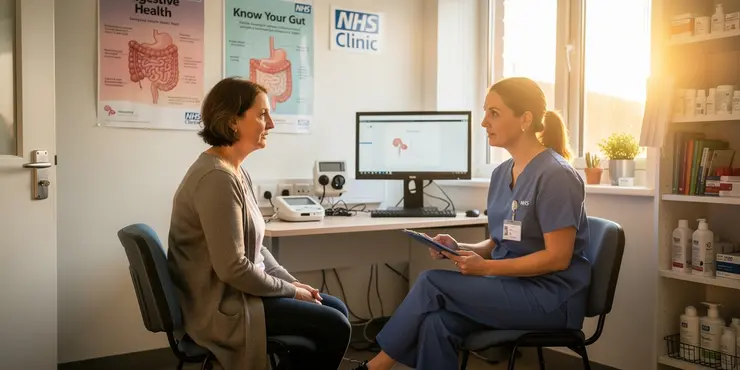
About irritable bowel syndrome (IBS)
Relevance: 85%
-
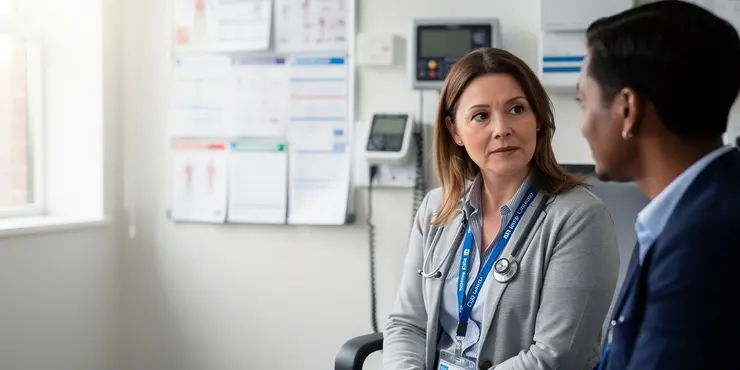
What is irritable bowel syndrome (IBS)?
Relevance: 84%
-
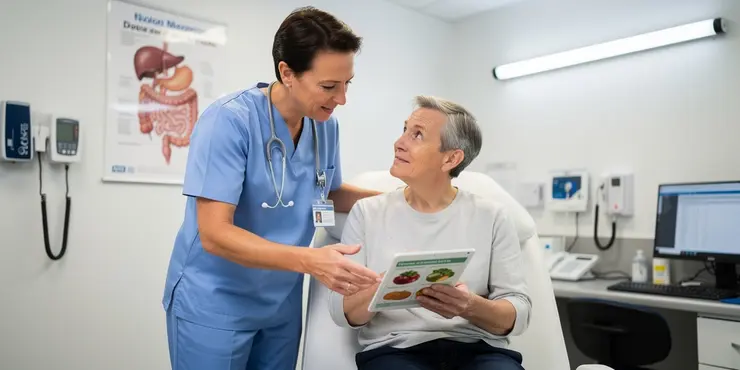
Treating irritable bowel syndrome (IBS)
Relevance: 82%
-
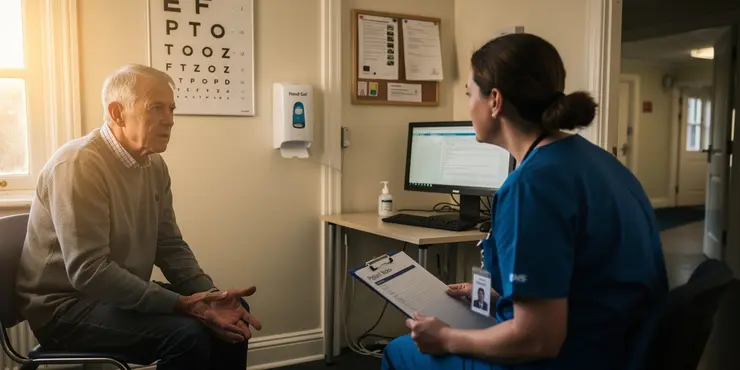
Causes of irritable bowel syndrome (IBS)
Relevance: 82%
-
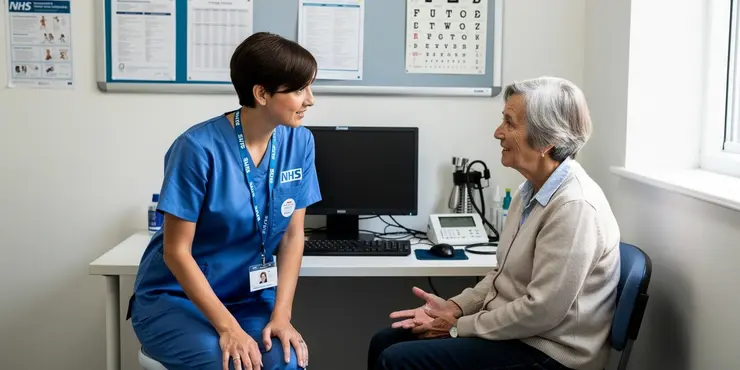
Causes of irritable bowel syndrome (IBS)
Relevance: 80%
-

Treating irritable bowel syndrome (IBS)
Relevance: 77%
-

Bowel cancer - Symptoms and signs to look out for
Relevance: 46%
-
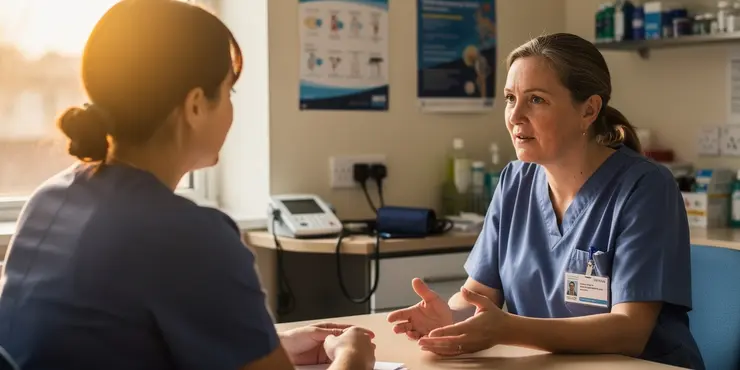
What are the side effects of bowel cancer treatment?
Relevance: 41%
-

What are the common symptoms of Carpal Tunnel Syndrome?
Relevance: 41%
-
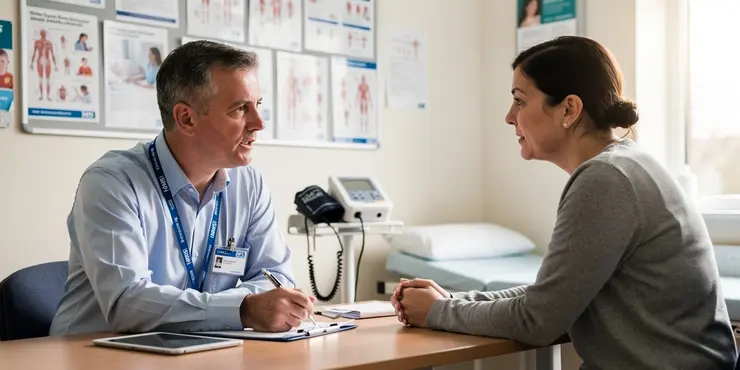
Why is there a surge in bowel cancer?
Relevance: 39%
-
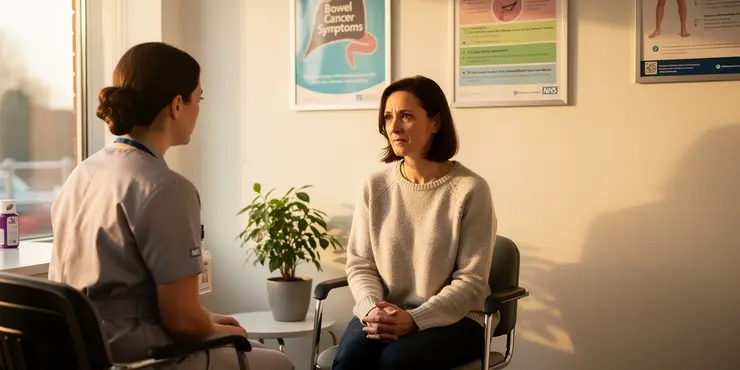
What is Bowel Cancer?
Relevance: 39%
-
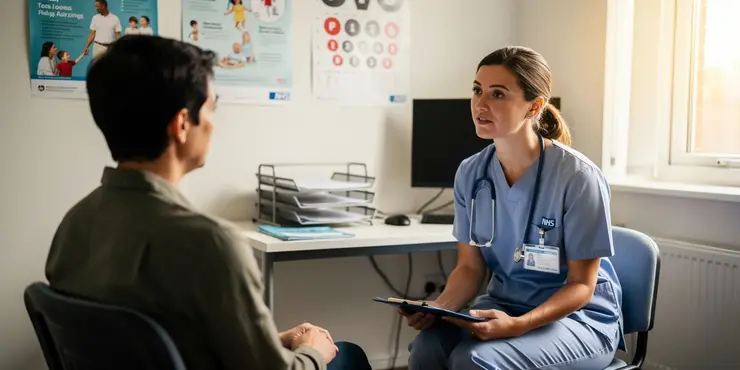
How does family history affect the risk of bowel cancer?
Relevance: 39%
-
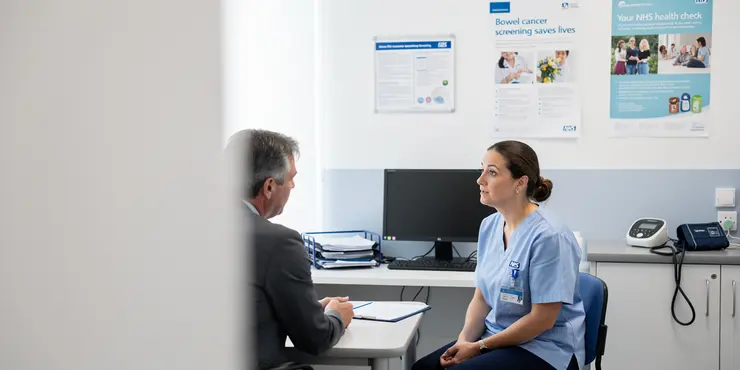
Taking a Genetic Family History - The Conversation (Bowel Cancer)
Relevance: 39%
-
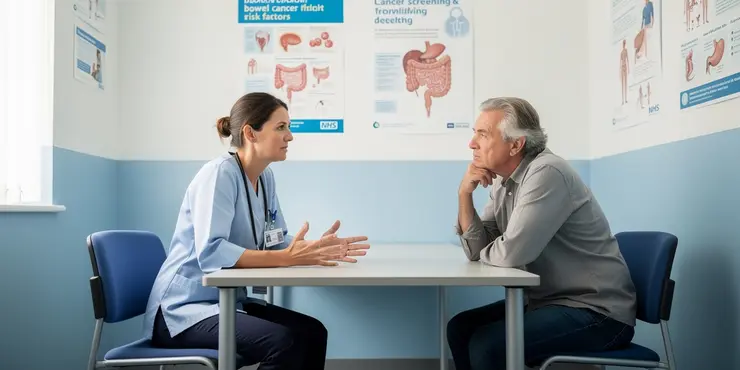
What are the risk factors for bowel cancer?
Relevance: 38%
-
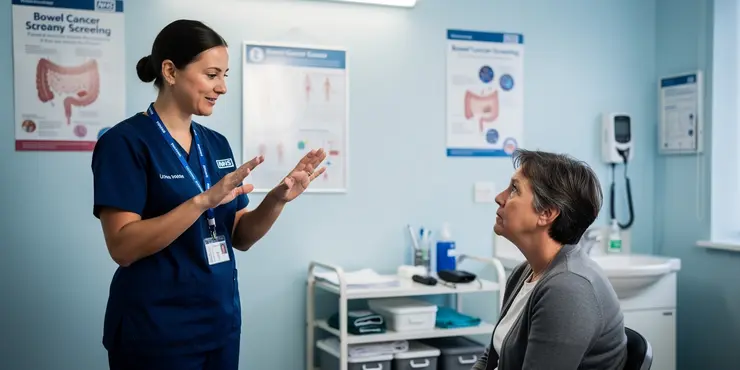
Learn about bowel cancer (British Sign Language version)
Relevance: 38%
-
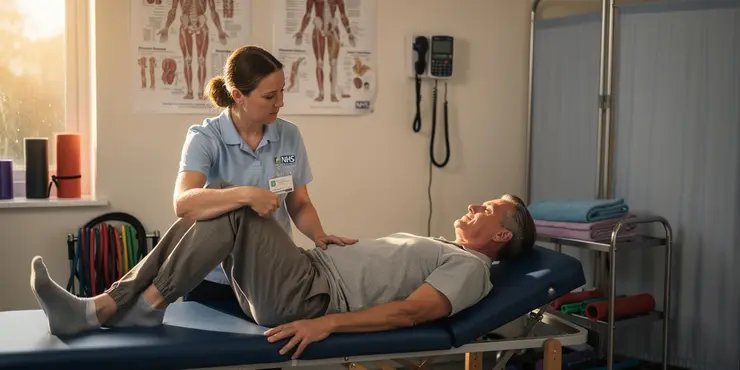
Exercises for sciatica: piriformis syndrome | NHS
Relevance: 37%
-

How common is bowel cancer?
Relevance: 36%
-

What is Cushing's syndrome?
Relevance: 36%
-
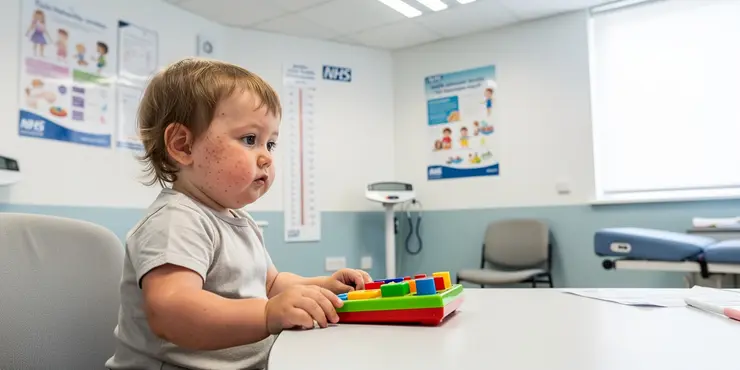
Prader-Willi Syndrome | NHS
Relevance: 35%
-
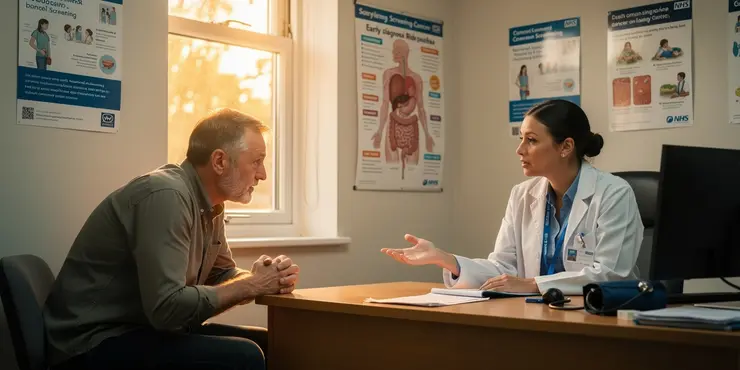
How is bowel cancer diagnosed?
Relevance: 35%
-
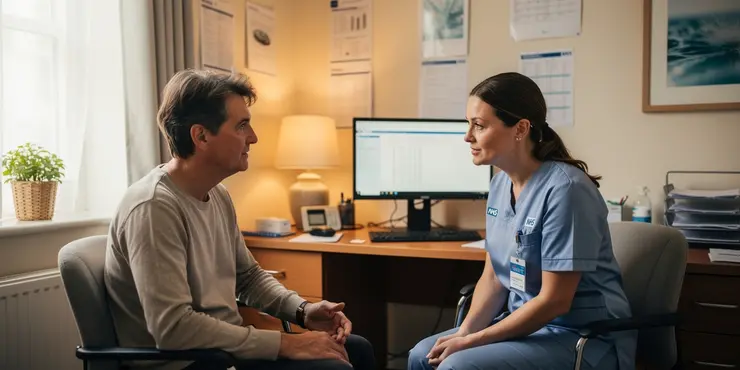
Munchausen's syndrome | NHS
Relevance: 35%
-

Carpal Tunnel Syndrome
Relevance: 34%
-

Is chronic fatigue syndrome contagious?
Relevance: 34%
-
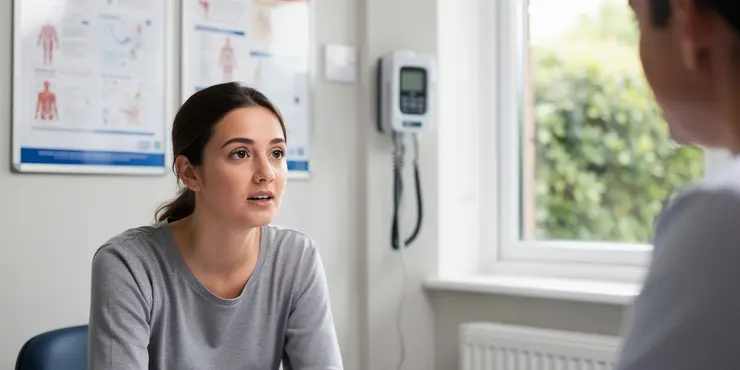
Are younger people being diagnosed with bowel cancer more frequently?
Relevance: 34%
-
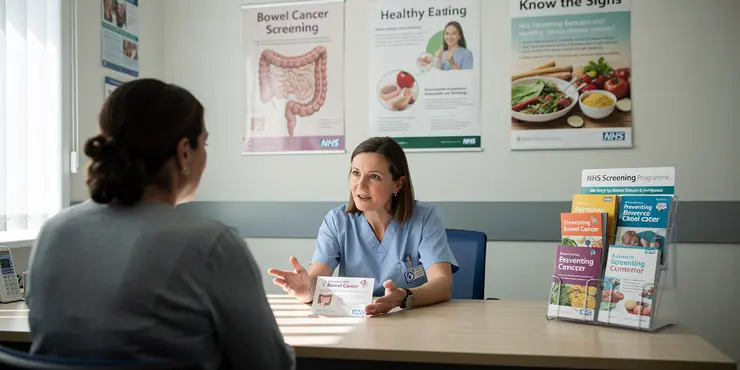
Can bowel cancer be prevented?
Relevance: 33%
-
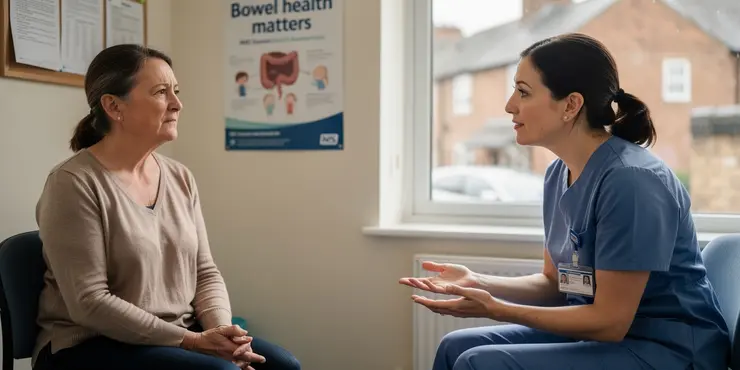
Can bowel cancer spread to other parts of the body?
Relevance: 33%
-

What is complex sleep apnea syndrome?
Relevance: 33%
-
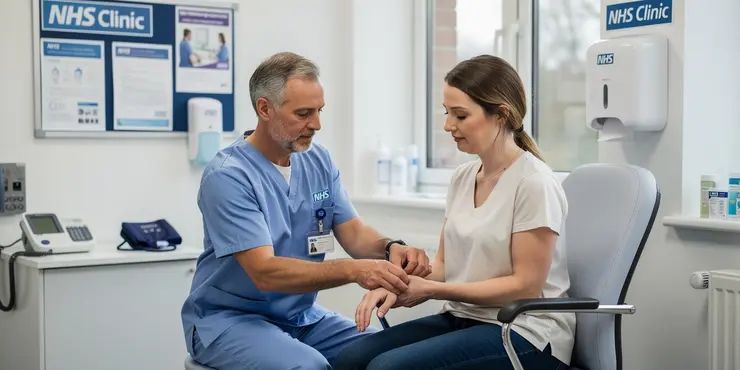
How is Carpal Tunnel Syndrome diagnosed?
Relevance: 33%
-
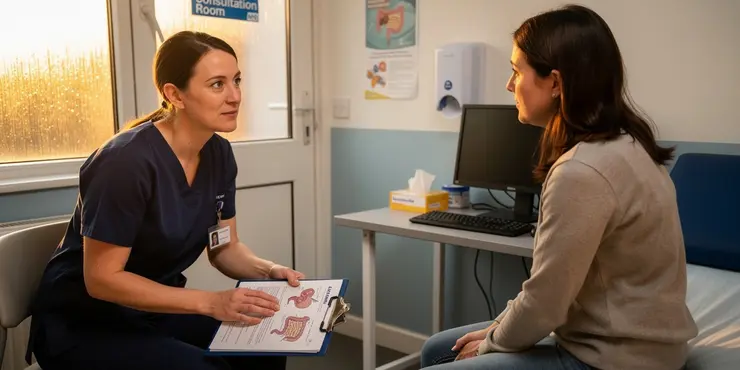
IBS and your mind: Is there a connection?
Relevance: 33%
-
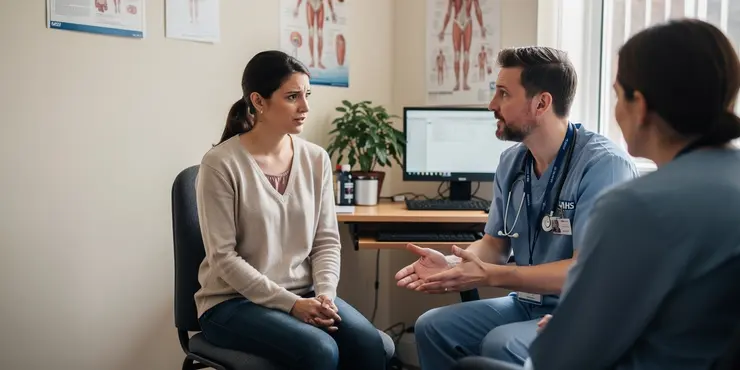
IBS and your mind: Is there a connection?
Relevance: 32%
-
What is chronic fatigue syndrome?
Relevance: 32%
-

Are there any alternative treatments for Carpal Tunnel Syndrome?
Relevance: 32%
-
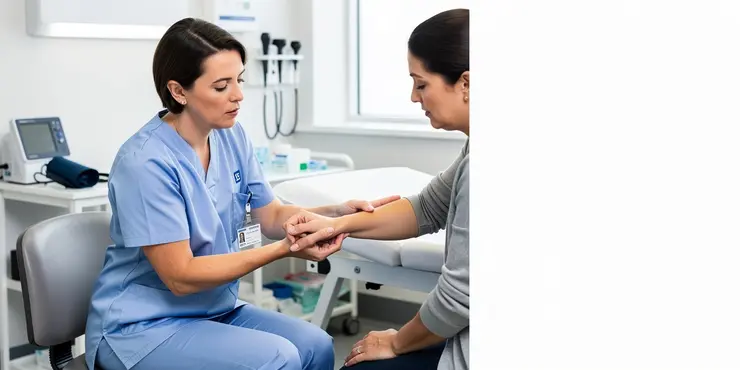
What is Carpal Tunnel Syndrome (CTS)?
Relevance: 32%
-
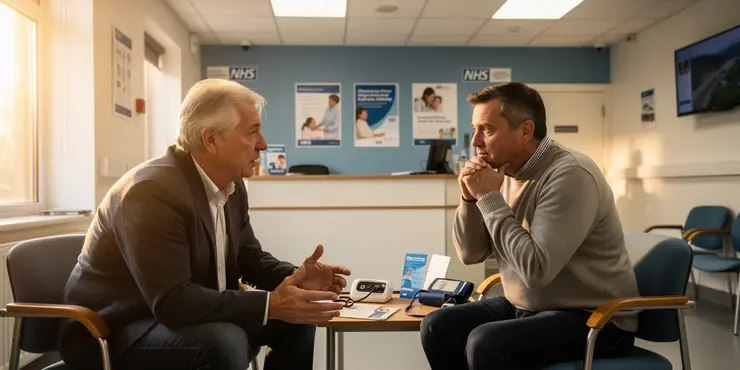
Bowel cancer screening: Alan Titchmarsh and Tommy Walsh | NHS
Relevance: 32%
-
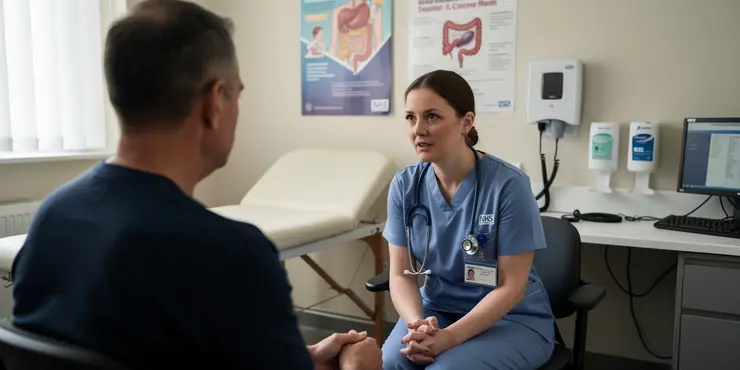
What is the survival rate for bowel cancer?
Relevance: 32%
Symptoms of Irritable Bowel Syndrome (IBS)
Introduction to IBS
Irritable Bowel Syndrome (IBS) is a common condition affecting the digestive system, often causing discomfort and inconvenience. In the United Kingdom, it's estimated that between 10-20% of the population suffer from IBS. This condition manifests through a variety of symptoms that can vary greatly from one individual to another. Understanding these symptoms is crucial for better management and seeking appropriate treatment.
Abdominal Pain and Cramping
A prominent symptom of IBS is abdominal pain or cramping. This discomfort typically occurs in the lower abdomen and may be alleviated after a bowel movement. The pain is often linked to the gut’s irregular motility and the increased sensitivity of the intestines. The severity and duration of this pain can vary widely among sufferers.
Changes in Bowel Habits
Individuals with IBS frequently experience changes in their bowel habits. This may include diarrhoea, constipation, or alternating between the two. Diarrhoea-predominant IBS (IBS-D) involves frequent loose stools, often accompanied by an urgent need to defecate. Constipation-predominant IBS (IBS-C) involves infrequent, hard, or lumpy stools. Some patients may also experience a combination, known as mixed IBS (IBS-M).
Bloating and Swelling
Bloating is another common symptom of IBS, where the abdomen feels full and tight. This bloating can cause visible swelling and is often exacerbated by food intake. Individuals may find certain foods trigger bloating, making dietary adjustments a vital part of managing IBS.
Excess Gas
Increased production of gas or difficulty in passing gas can lead to excessive flatulence, another symptom of IBS. This can cause discomfort and social embarrassment. Gas buildup can contribute to bloating and abdominal pain, creating a cycle of discomfort for the sufferer.
Urgency and Incomplete Evacuation
People with IBS may feel an urgent need to move their bowels, which can sometimes come on very suddenly. Additionally, a sensation of incomplete evacuation, where it feels like the bowel movement is not fully finished, can be frustrating and uncomfortable. This can make sufferers feel the need to use the restroom frequently.
Management and Getting Help
If you are experiencing any of these symptoms consistently, it is important to consult a healthcare professional for a proper diagnosis and management plan. Lifestyle changes including diet, stress management, and medication can significantly alleviate symptoms. The NHS provides various resources and support for those affected by IBS.
By recognising the symptoms and understanding the nature of IBS, individuals can take proactive steps towards managing this condition effectively.
Symptoms of Irritable Bowel Syndrome (IBS)
What is IBS?
IBS stands for Irritable Bowel Syndrome. It affects your tummy and how you digest food. In the United Kingdom, 10 to 20 out of every 100 people have it. People with IBS might feel different symptoms, and they can change from one person to another. Knowing these symptoms helps you manage IBS better and find the right treatment.
Tummy Pain and Cramping
If you have IBS, you might feel pain or cramps in your tummy, usually in the lower part. The pain often goes away after you use the toilet. This happens because the gut moves in an unusual way and becomes more sensitive. This pain can be different for each person, sometimes it lasts a short time and sometimes longer.
Changes in Toilet Habits
People with IBS often notice changes when they go to the toilet. You might have diarrhea, constipation, or switch between the two. If you mostly have diarrhea, you may need to rush to the toilet with loose poop often. If you mostly have constipation, your poop might be hard or lumpy, and you might not go often. Some people have both diarrhea and constipation.
Feeling Bloated and Swollen
Another symptom of IBS is feeling bloated, where your tummy feels full and tight. This can make your tummy look bigger. Eating certain foods might make bloating worse. That's why it can help to change your diet to manage IBS.
Too Much Gas
Having a lot of gas can also happen with IBS, making you feel uncomfortable or embarrassed if you pass wind often. This extra gas can make bloating and tummy pain worse, adding to how bad you feel.
Needing the Toilet Quickly
People with IBS might suddenly feel like they need to rush to the toilet. Sometimes, after using the toilet, it might feel like you're not finished. This can be annoying and make you feel like you need to go often.
Getting Help
If you often have these symptoms, talk to a doctor. They can help find out if you have IBS and what to do next. Changing your lifestyle, such as eating better, managing stress, and taking medicine, can help make symptoms better. The NHS offers help and resources for people with IBS.
By knowing the symptoms and understanding IBS, you can do more to take care of yourself and feel better.
Frequently Asked Questions
What are the common symptoms of IBS?
Common symptoms of IBS include abdominal pain, bloating, gas, diarrhoea, constipation, and a mix of diarrhoea and constipation.
Is IBS a life-threatening condition?
No, IBS is not life-threatening. While it can cause significant discomfort and affect quality of life, it does not lead to serious disease or shorten life expectancy.
How is IBS diagnosed?
IBS is usually diagnosed based on symptoms and medical history. Doctors may also perform tests such as blood tests, stool tests, and colonoscopy to rule out other conditions.
Can changes in diet help manage IBS symptoms?
Yes, dietary changes can often help manage IBS symptoms. Common recommendations include eating smaller meals, increasing fibre intake, and avoiding trigger foods such as caffeine, alcohol, and fatty foods.
Are stress and anxiety related to IBS?
Yes, stress and anxiety can exacerbate IBS symptoms. Managing stress through relaxation techniques, exercise, and counselling can help reduce symptoms.
Can IBS cause weight loss?
IBS can sometimes lead to weight loss due to dietary restrictions or loss of appetite. However, significant or unexplained weight loss should be discussed with a doctor to rule out other conditions.
Is IBS more common in women or men?
IBS is more commonly diagnosed in women than men. Hormonal factors may play a role in its higher prevalence among women.
What medications are available for IBS?
Medications for IBS include antispasmodics, laxatives, anti-diarrhoeal medications, and sometimes antidepressants. The choice of medication depends on the predominant symptoms.
Can probiotics help with IBS symptoms?
Probiotics may help alleviate some IBS symptoms for some people. However, their effectiveness can vary, and it may take several weeks of use to notice any improvement.
Is IBS the same as inflammatory bowel disease (IBD)?
No, IBS is not the same as IBD. IBS is a functional disorder that affects the gut without causing inflammation, while IBD includes conditions like Crohn's disease and ulcerative colitis, which involve inflammation and damage to the bowel.
Can children have IBS?
Yes, children can have IBS. The symptoms and management strategies are similar to those in adults.
Are there any long-term complications of IBS?
IBS does not cause long-term damage to the intestines or lead to serious disease. However, chronic symptoms can impact quality of life.
Can exercise help with IBS symptoms?
Regular exercise can help manage IBS symptoms by reducing stress and promoting normal bowel function. Activities like walking, yoga, and swimming are generally recommended.
Are there any alternative therapies for IBS?
Some people find relief through alternative therapies such as acupuncture, hypnotherapy, and herbal remedies. It's important to discuss these options with a healthcare provider.
What should I do if I suspect I have IBS?
If you suspect you have IBS, it's important to consult a healthcare professional for a proper diagnosis and to discuss appropriate management strategies for your symptoms.
What signs show you might have IBS?
Here are some signs that you might have IBS (Irritable Bowel Syndrome):
- Tummy pain that comes and goes
- Feeling bloated
- Having diarrhea (watery poo)
- Being constipated (hard poo)
- Tummy feeling better after going to the toilet
If you have these signs, it’s good to talk to a doctor.
Tools to help:
- Keep a food diary: Write down what you eat and how your tummy feels.
- Relax with deep breaths: Take slow, deep breaths when you feel stressed.
- Exercise: Take short walks to help your tummy feel better.
Some signs of IBS are tummy pain, feeling puffy, passing wind, runny poop, having trouble going to the toilet, or having both runny poop and trouble going to the toilet.
Can IBS make you very sick or die?
No, IBS is not dangerous. It can make you feel bad and might change how you live your life. But it doesn't cause serious sickness or make you live a shorter life.
How do doctors find out if you have IBS?
Doctors will ask questions about how you feel. They may ask if your tummy hurts or if you have trouble going to the toilet. They will want to know if this happens a lot.
Doctors may do some tests. One test may be to check your poo. Another test may be a blood test. This helps doctors learn more about what is happening inside your body.
If you have IBS, doctors will help you feel better. They might suggest changes to your food, medicine, or ways to help you relax.
Sometimes, talking to a nurse or a doctor can help. A family member can also help you understand what the doctor says.
Doctors tell if someone has IBS by looking at what symptoms they have and their medical history. Doctors might also do some tests. These tests can be blood tests, stool tests, or a colonoscopy. This helps doctors make sure it is not something else.
Can different foods help with IBS?
IBS means Irritable Bowel Syndrome. It makes your tummy hurt, or you might need to go to the toilet a lot. Changing what you eat might help your tummy feel better.
Here are some tips:
- Eat slowly and chew your food well.
- Try to eat at the same times each day.
- Drink plenty of water.
- Eat more fruits and vegetables.
- Try to avoid too much coffee, tea, and spicy foods.
If you need help, you can:
- Use pictures or drawings of foods that are good for you.
- Ask someone to help you plan your meals.
- Keep a diary of what you eat and how you feel.
Yes, changing what you eat can help with IBS (Irritable Bowel Syndrome) symptoms. To feel better, try eating smaller meals. Eat more foods with fibre like fruits and vegetables. Stay away from foods and drinks that might upset your tummy, like caffeine (in coffee or tea), alcohol (in beer or wine), and fatty foods (like chips or fried food).
Do stress and worry make IBS worse?
Yes, feeling worried or stressed can make IBS worse. Doing things to relax, moving your body with exercise, and talking to someone about your feelings can help you feel better.
Can IBS make you lose weight?
Sometimes, people with IBS might lose weight. This can happen because they eat less food or don't feel hungry. But if someone loses a lot of weight or doesn't know why they are losing weight, they should talk to a doctor. This helps make sure there are no other health problems.
Do more women or men have IBS?
IBS means your tummy can feel upset a lot.
More women have IBS than men.
Here are some things that may help you feel better:
- Eat small meals
- Try mindfulness or relaxing activities
- Talk to a doctor if you need help
More women than men have IBS. Hormones might be one reason women get IBS more often.
What medicines can help with IBS?
IBS stands for Irritable Bowel Syndrome. It can make your stomach hurt or feel funny. There are certain medicines that can help people feel better. Here are some ideas:
- Ask a doctor about pills that can help with pain.
- Some medicines can help if you need to go to the bathroom a lot.
- Other medicines can help if it is hard to go to the bathroom.
It is best to talk to a doctor to find out what medicine is right for you. They can give good advice. Using pictures or videos to learn more can also help. Remember to ask questions if something is not clear.
There are different medicines for IBS. IBS stands for Irritable Bowel Syndrome.
The medicines you can take include:
- Antispasmodics: These help stop the stomach from cramping.
- Laxatives: These help if you have trouble going to the toilet.
- Anti-diarrhoeal: These help if you have to run to the toilet a lot.
- Sometimes doctors give antidepressants, too.
Your doctor will choose the best medicine for you, based on your symptoms.
If reading is difficult, listen to an audiobook or ask someone to read to you.
Can probiotics help with tummy problems?
Probiotics might help some people feel better if they have IBS (that's a tummy problem). But, they don't help everyone, and you might need to try them for a few weeks to see if they work for you.
Is IBS the same as IBD?
IBS and IBD are different. IBS is short for Irritable Bowel Syndrome. IBD is short for Inflammatory Bowel Disease.
IBS does not cause harm to your bowel. It can make your tummy hurt or feel uncomfortable. IBS can cause problems like bloating or needing the toilet a lot.
IBD is more serious. It means parts of your bowel are swollen. This can damage your bowel. IBD includes diseases like Crohn’s disease and ulcerative colitis.
If you have questions, talk to a doctor. You can also use tools like picture charts to help understand better.
No, IBS and IBD are not the same. IBS is a stomach problem that doesn't cause swelling. IBD includes illnesses like Crohn's disease and ulcerative colitis, which cause swelling and damage in the tummy.
Can kids get IBS?
Yes, kids can get IBS. IBS stands for Irritable Bowel Syndrome. It means that their tummy might hurt, and they might have to go to the bathroom a lot. Kids with IBS might feel gassy or have to run to the toilet quickly.
Here are some ways to help:
- Talk to a doctor to find out what's wrong.
- Eat healthy foods and drink lots of water.
- Try to relax and do fun activities.
- Keep a diary of how they feel each day to show the doctor.
Remember, it's important to get help if your tummy really hurts.
Yes, kids can have IBS, which is short for Irritable Bowel Syndrome. The signs and how to help are like what grown-ups do.
Can IBS cause problems later?
IBS stands for Irritable Bowel Syndrome. It's when your tummy hurts and you may have trouble going to the toilet.
People usually do not have serious problems from IBS. But, it can make you uncomfortable and upset.
If you are worried about IBS, talk to your doctor for help.
You can use tools like:
- A diary to write down what you eat and how you feel.
- A calendar to track when you feel sick.
IBS does not hurt your intestines or lead to serious illness. But, having symptoms for a long time can affect how happy you feel and live your life.
Can exercise make IBS symptoms better?
Exercise can be good for people with IBS. IBS stands for Irritable Bowel Syndrome. It means your tummy might hurt or feel strange.
Moving your body can help you feel better. Walking, stretching, or doing yoga can be good. Try to exercise a little bit every day!
Here are some things that can help:
- Find an exercise you like. It should be fun!
- Start slowly. Do a little at a time.
- Ask someone to exercise with you. It can be a friend or family member.
If you have questions, ask a grown-up or your doctor. They can help you choose the right exercise.
Regular exercise can help with IBS symptoms. It can make you feel less stressed and help your tummy work better. Try going for walks, doing yoga, or swimming. These activities are good for you.
What other treatments can help with IBS?
IBS is when your tummy hurts and feels strange. Other things might help make it better:
- Diet changes: Eating foods that are gentle on your tummy can help.
- Exercise: Moving your body can make you feel better.
- Relaxation: Breathing deep or listening to calming music can help you feel calm.
- Talking to someone: Sometimes talking to a doctor or friend can help.
It's important to talk to your doctor before trying new things.
Some people feel better with different types of treatments like acupuncture, hypnotherapy, and using special plants. Talk to a doctor or nurse about these choices.
What to do if you think you have IBS
IBS stands for Irritable Bowel Syndrome. It can make your tummy hurt, and you might feel like you need to use the bathroom a lot.
If you think you have IBS, here are some steps you can take:
- Talk to a doctor or a nurse. They are there to help you feel better.
- Write down what you eat and how you feel afterwards. This can help the doctor see what might be upsetting your tummy.
- Try to eat slowly and chew your food well.
- Drink lots of water to stay healthy.
- Ask for help if you feel worried or stressed.
Using pictures or asking someone you trust to help explain things can make it easier to understand.
If you think you might have IBS (Irritable Bowel Syndrome), it’s a good idea to talk to a doctor. They can tell you if you have IBS for sure and help you find ways to feel better.
Useful Links
This website offers general information and is not a substitute for professional advice.
Always seek guidance from qualified professionals.
If you have any medical concerns or need urgent help, contact a healthcare professional or emergency services immediately.
Some of this content was generated with AI assistance. We’ve done our best to keep it accurate, helpful, and human-friendly.
- Ergsy carfully checks the information in the videos we provide here.
- Videos shown by Youtube after a video has completed, have NOT been reviewed by ERGSY.
- To view, click the arrow in centre of video.
- Most of the videos you find here will have subtitles and/or closed captions available.
- You may need to turn these on, and choose your preferred language.
- Go to the video you'd like to watch.
- If closed captions (CC) are available, settings will be visible on the bottom right of the video player.
- To turn on Captions, click settings .
- To turn off Captions, click settings again.
More Items From Ergsy search
-

Symptoms of irritable bowel syndrome (IBS)
Relevance: 100%
-

Symptoms of irritable bowel syndrome (IBS)
Relevance: 87%
-

What is irritable bowel syndrome (IBS)?
Relevance: 86%
-

Diagnosing irritable bowel syndrome (IBS)
Relevance: 86%
-

About irritable bowel syndrome (IBS)
Relevance: 85%
-

About irritable bowel syndrome (IBS)
Relevance: 85%
-

What is irritable bowel syndrome (IBS)?
Relevance: 84%
-

Treating irritable bowel syndrome (IBS)
Relevance: 82%
-

Causes of irritable bowel syndrome (IBS)
Relevance: 82%
-

Causes of irritable bowel syndrome (IBS)
Relevance: 80%
-

Treating irritable bowel syndrome (IBS)
Relevance: 77%
-

Bowel cancer - Symptoms and signs to look out for
Relevance: 46%
-

What are the side effects of bowel cancer treatment?
Relevance: 41%
-

What are the common symptoms of Carpal Tunnel Syndrome?
Relevance: 41%
-

Why is there a surge in bowel cancer?
Relevance: 39%
-

What is Bowel Cancer?
Relevance: 39%
-

How does family history affect the risk of bowel cancer?
Relevance: 39%
-

Taking a Genetic Family History - The Conversation (Bowel Cancer)
Relevance: 39%
-

What are the risk factors for bowel cancer?
Relevance: 38%
-

Learn about bowel cancer (British Sign Language version)
Relevance: 38%
-

Exercises for sciatica: piriformis syndrome | NHS
Relevance: 37%
-

How common is bowel cancer?
Relevance: 36%
-

What is Cushing's syndrome?
Relevance: 36%
-

Prader-Willi Syndrome | NHS
Relevance: 35%
-

How is bowel cancer diagnosed?
Relevance: 35%
-

Munchausen's syndrome | NHS
Relevance: 35%
-

Carpal Tunnel Syndrome
Relevance: 34%
-

Is chronic fatigue syndrome contagious?
Relevance: 34%
-

Are younger people being diagnosed with bowel cancer more frequently?
Relevance: 34%
-

Can bowel cancer be prevented?
Relevance: 33%
-

Can bowel cancer spread to other parts of the body?
Relevance: 33%
-

What is complex sleep apnea syndrome?
Relevance: 33%
-

How is Carpal Tunnel Syndrome diagnosed?
Relevance: 33%
-

IBS and your mind: Is there a connection?
Relevance: 33%
-

IBS and your mind: Is there a connection?
Relevance: 32%
-
What is chronic fatigue syndrome?
Relevance: 32%
-

Are there any alternative treatments for Carpal Tunnel Syndrome?
Relevance: 32%
-

What is Carpal Tunnel Syndrome (CTS)?
Relevance: 32%
-

Bowel cancer screening: Alan Titchmarsh and Tommy Walsh | NHS
Relevance: 32%
-

What is the survival rate for bowel cancer?
Relevance: 32%


